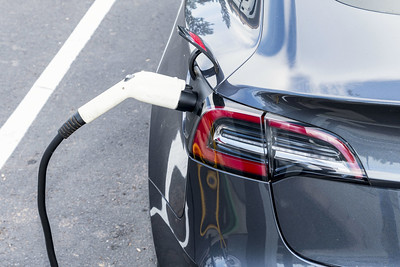A recent report authored by the Argonne National Laboratory (ANL) indicated that Michigan is among four states that will see “the highest growth in battery manufacturing capacity.” The report examines the status of light-duty, plug-in electric vehicles in the United States between 2010 and 2021.
Battery manufacturing and advances in battery technology are essential to ensuring the long-term viability of the auto industry. Large manufacturers, like the Ford Motor Company, have plans to go all-in on electric vehicles by 2030. Co-incidentally, the ANL report examines the increase in battery manufacturing capacity through 2030.
In 2022 alone, GM announced that it would convert a portion of its Orion Township to electric truck assembly and would invest in a new Ultium battery plant in Lansing. LG announced that it would create 1,200 battery assembly jobs in Holland, MI. Ford announced that it would expand manufacturing jobs by 3,200 to support its electric vehicle production. A new manufacturing plant for EV charging stations will open in Auburn Hills. A new EV battery manufacturing facility (along with 2,100 jobs) will open in Van Buren Township. Additionally, a new battery manufacturing plant will open in Big Rapids, creating 2,300 new jobs.
Combined, these projects represent nearly $15B in new manufacturing investments in Michigan. Van Buren Township is just 15 miles east of WCC. Unfortunately, WCC has little to offer to support this growing Michigan industry.
Companies are making multi-billion dollar investments in electric vehicles and related supportive technologies. None of those billions so far have landed in Washtenaw County. The bigger issue is that alternative energy job growth (automotive or otherwise) is exploding. Michigan saw more than 35,000 new alternative energy jobs created in 2022 alone. (Less than 15% of those new jobs were EV auto-related.)
Battery manufacturing not the only industry in need of workers
Solar energy, wind energy, energy efficiency, and transmission, distribution, and storage accounted for most new alternative energy jobs created in 2022. (That’s more than 101,000 new jobs in the US, in case you’re wondering.) And they’re the kinds of jobs that come with nice paychecks.
Energy production is like dairy production – it must be done locally. Alternative energy is essential to combating climate change, so existing (and new) energy suppliers need a locally trained workforce. This is literally a no-brainer in terms of new academic programs.
So, where is WCC? Where are the new programs that support alternative energy jobs? Why isn’t Washtenaw County being considered for some of the billions of dollars that companies are currently investing in alternative energy? More importantly, why are Washtenaw County taxpayers paying millions of dollars for college executives who seem either unaware of or apathetic to this opportunity?
Photo Credit: Oregon Department of Transportation, via Flickr
















